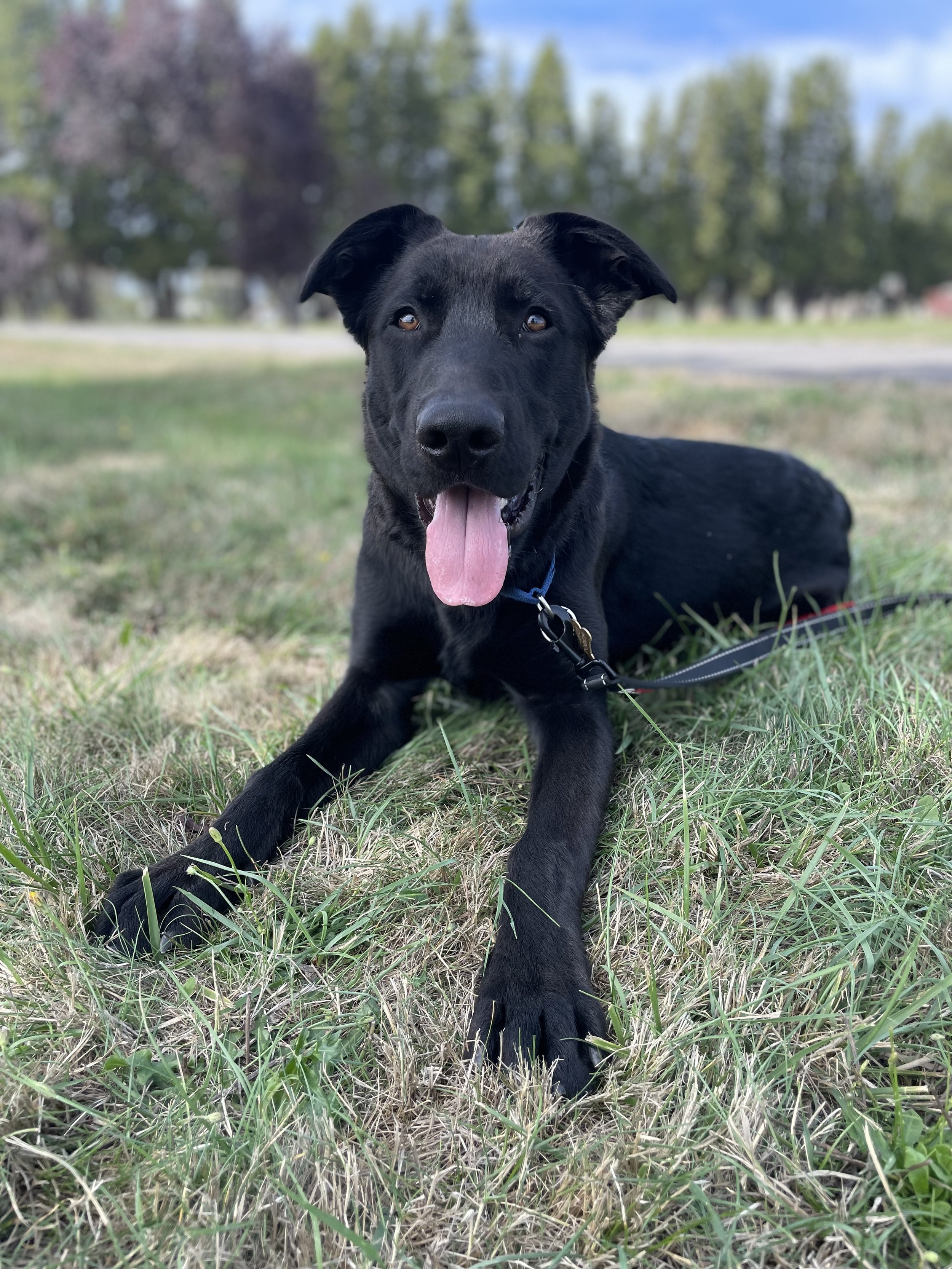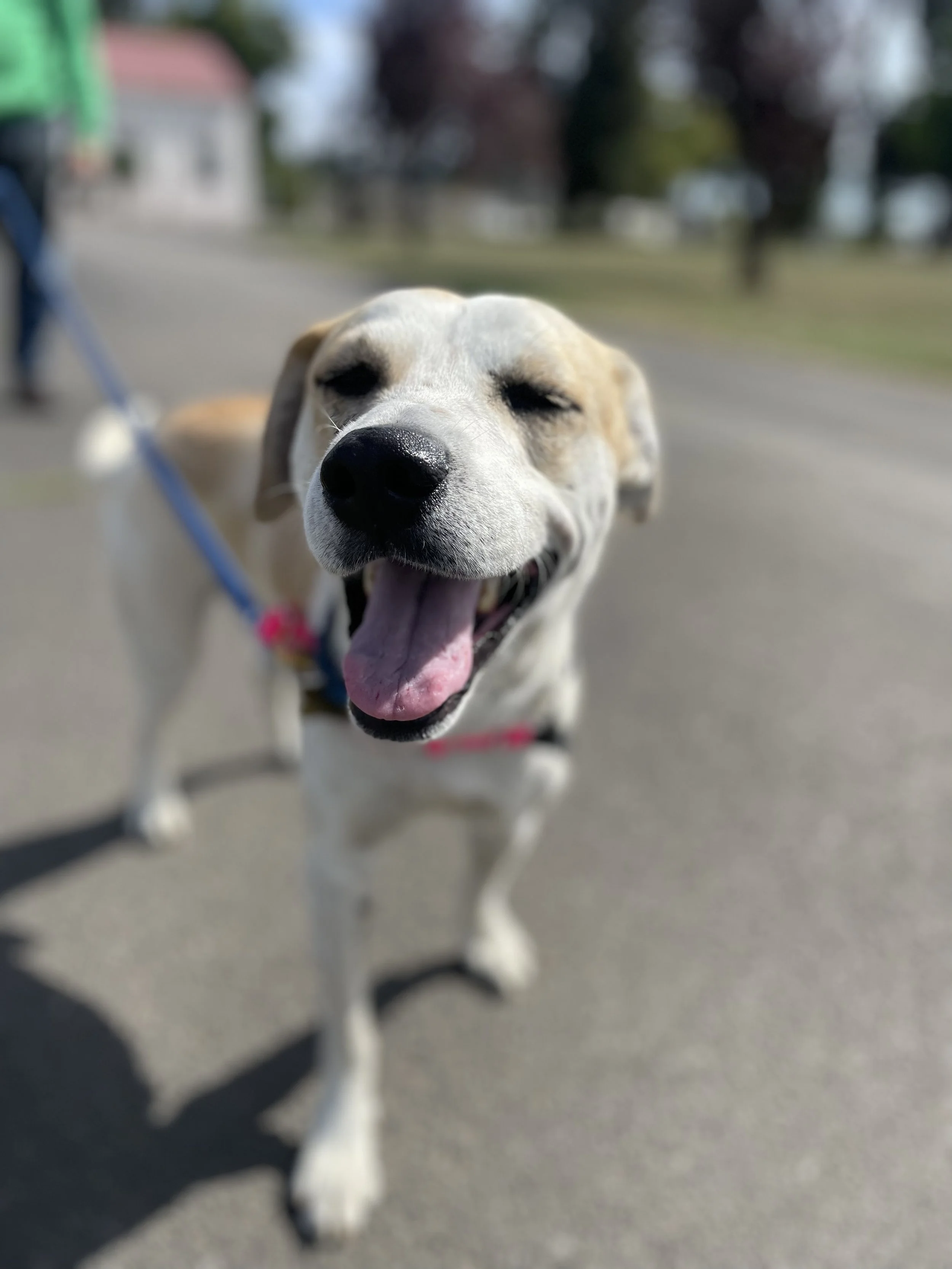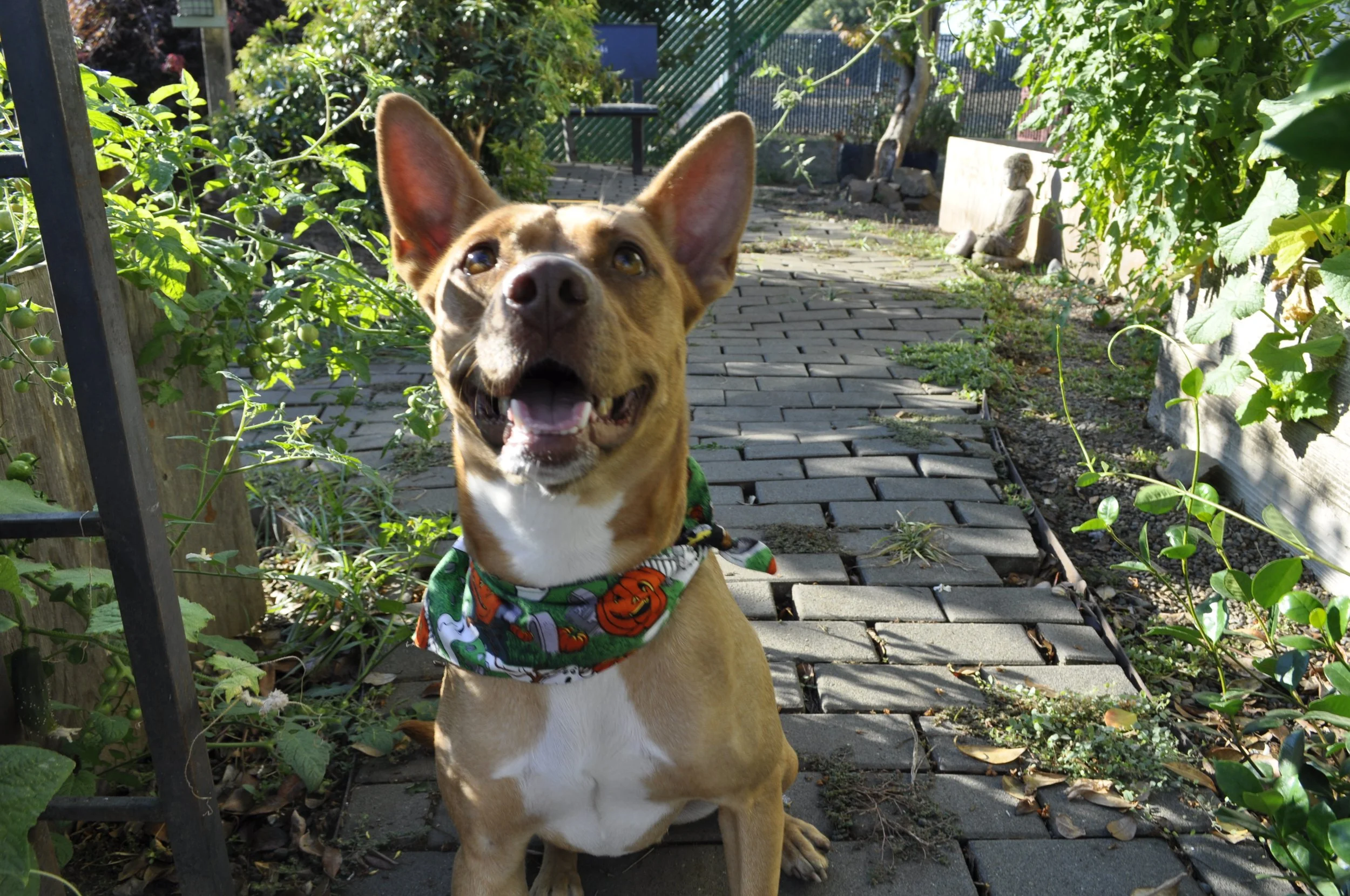
Program: FAQ
-
We provide opportunities for youth in corrections to develop the personal and vocational skills they will need to become responsible, productive members of the community. The program accomplishes this by teaching youth to care for and train shelter dogs for adoption. The youth work with, care for, groom, socialize, love, and train shelter dogs so the dogs can be adopted into their forever homes.
Project POOCH has been successfully pairing these two at-risk groups since 1993.
-
Project POOCH was founded in 1993, by Joan Dalton when she was vice principal at Lord High School at MacLaren Youth Correctional Facility.
Originally, Project POOCH was managed by the Oregon Youth Authority at MacLaren and all operations and administration was managed from that location. We became a 501(c)(3) nonprofit in 1999. At that time, we established an administrative office in Lake Oswego, Oregon, approximately 20 miles from MacLaren.
-
Project POOCH is a 501c3 nonprofit and is largely funded by private donations and grants. In 2021, our revenue was 70% donations, 22.5% grants, 6% dog program (adoptions, grooming, boarding services), and 1.5% miscellaneous (events, merchandise, etc …)
-
The youth participate in the operation of our kennel from working with the dogs, to their daily care, to facility upkeep, to interacting with potential adopters. The key values the youths learn through their work with the dogs at Project POOCH are: Patience, Responsibility, Compassion, and Trust.
The youth have the opportunity to complete the Fear Free Shelter Program, take a Canine Basics and Canine Advanced course through IBPSA, to learn basic kennel management skills, and to learn basic to intermediate dog training skills.
-
MacLaren Youth Correctional Facility is a correctional facility located in Woodburn, Oregon. Maclaren is under the jurisdiction of the Oregon Youth Authority (OYA). It was originally built in 1926 and houses youth offenders ages 12–25.
-
At this time, we only operate at MacLaren Youth Correctional Facility. At times other correctional facilities will reach out to us and we can offer guidance for them to launch their own programs.
-
The number of youths in the program varies based on the current population at MacLaren. The youth who participate in Project POOCH must meet certain criteria, and at times there are more youth who meet those criteria than we have positions for, and at other times there may be fewer. Due to OYA regulations, we must maintain a ratio of no more than 7 youth with a corrections staff person. Typically, anywhere from five to ten youths are involved with the program at any given time.
POOCH Dogs: FAQ
-
Project POOCH started with one youth and one dog. Our kennel has space for 9 dogs. We typically have 5 POOCH program dogs, and space for 2–4 boarding and daycare dogs. However, we are limited in the number of dogs we have in our program based on the number of youth we have in our program. If we have fewer youth, we will have fewer dogs, and if we have more youth, we will have more dogs. We teach the youth that their primary responsibility is to ensure each dog in our kennel is well cared for, including daily walks, training, and playtime.
-
Our dogs come from shelters throughout the greater Portland metro area. We work with the local shelters and rescues to identify dogs who have been overlooked, and are having a difficult time being placed whether it is because they are shutting down, extremely hyper, need training and/or socialization, or the shelter is overcrowded. We accept dogs who we think will benefit from and succeed in our unique program. We are not a rescue, rather we partner with shelters; every time Project POOCH takes a dog from a shelter, it opens up space for the shelter to serve another dog.
We don't take dogs from private individuals because we are trying to teach the youths that dogs are a lifetime commitment regardless of situational changes. Many of the youths in our program have broken relationships with their families, so accepting a dog that has been given up by his or her human is very difficult for them.
-
Unfortunately, no. We do not take dogs from private individuals. We work with local shelters to identify dogs that can benefit from our program. This helps to alleviate the stress of overcrowding on our local municipal shelters. If you need to rehome your dog, we recommend using resources such as your local friend network, the NextDoor app, Facebook, and other social media platforms.
We don't take dogs from private individuals because we are trying to teach the youths that dogs are a lifetime commitment regardless of situational changes. Many of the youths in our program have broken relationships with their families, so accepting a dog that has been given up by his or her human is very difficult for them.
-
The first step is to read through our list of things to consider before adopting a dog. If you are still interested, you will want to complete an application. Once you have submitted an application, we will review it and contact you if you look like a good fit to schedule a meet & greet. Our kennel is within a locked youth correctional facility, so there are specific facility rules you will need to adhere to. You will be made aware of these rules when you schedule your appointment.
-
Project POOCH dogs represent a variety of breeds, personality types, and ages. We want the youth to learn how to adjust and adapt to varying conditions and challenges. By bringing in all types of dogs, the youths must learn patience and modify their training to meet each dog's needs and learning styles. Young puppies are not accepted into the program given the barriers to socialization in a correctional facility.
We are not setup to take aggressive dogs or extreme behavior cases.
-
The youth learn positive reinforcement training methods. Treats, pets, praise, toys, and clickers are used to reward the dogs for good/desired behavior. Through daily interaction and work with the dogs, the youth forge bonds and build trust with the dogs. Each dog is unique, and we strive to teach basic cues and life skills to the dogs in our care so they can be successful in an adoptive home.
-
No. We are committed to the dogs we bring into our kennel and will work with them until we can find them their forever home. Our traiing program is appx. 4–6 weeks long, so at the completion of the training cycle, a dog becomes available for adoption. Our goal is to have each POOCH dog in our program for 8 weeks or less to protect their mental health.
If a dog doesn’t end up being the right fit for their adoptive family, we will take our dogs back and work to find them the right fit. As with most other shelters in Oregon, the only reason we would seek out veterinary support to euthanize a dog is if the dog is a safety risk or has painful health issues. This would be a very uncommon situation for Project POOCH.
Project POOCH Dog Training
At Project POOCH we focus on basic dog training that will help a dog find their forever home. We treat each dog as a unique individual and develop training plans to meet their needs.
We work to teach basic cues and life skills for each dog. Cues are helpful in day-to-day life for the humans and pups, while life skills are critical to staying in a home.
Basic Cues
Sit: Sitting on cue. A hand motion is used to cue sit.
Down: Transitioning to a lying down position on cue, ideally with a leg kicked out to show comfort in this position. A hand motion is used to cue down.
Walking on a Loose Leash: Often times dogs that come to POOCH have difficulty walking on a leash. Walks, and specifically, controlled walks, are really important for everyday life for a dog and their people, so this is a skill we heavily focus on.
Stay/Wait: This is a very helpful cue when you need your dog to stay in place, and our wait for food. We start with a brief stay, 1 second, and work to progress up from there.
Touch/Handling: Comfort with touch is important for a dog’s health and happiness. Ears and paws are important touch points for a groomer or veterinarian. We help develop comfort with touch by providing treats and positive reinforcement with touch to start, and then decreasing the frequency of the treats over time.
Advanced Skills
Accept a friendly stranger: The dog will allow a friendly stranger to approach it and speak to the handler.
Sit politely for petting: The dog will allow a friendly stranger to pet it while it is out with its handler.
Walk through a crowd: The dog can move about politely in pedestrian traffic and is under control in public places.
Come when called: The dog will come when called by the handler (from 10 feet on a leash).
Be polite when encountering another dog: The dog can behave politely around other dogs. Two handlers and their dogs approach each other from a distance of about 20 feet, stop, shake hands and exchange pleasantries.
Stay focused in the face of distractions: The evaluator will select and present two distractions such as dropping a chair, etc.
Remain calm when left with a trusted person: The dog can be left with a trusted person. The evaluator will hold the dog's leash while the other person walks away.



